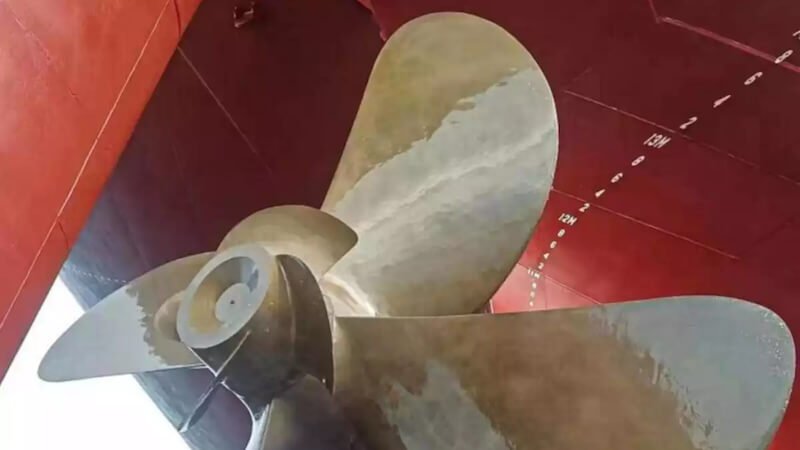
Chinese researchers have developed a coating for a ship's propeller that resembles dolphin skin. It is intended to reduce fuel consumption by two percent and reduce CO2 emissions.
Whether on the road, in the air or on the water: the way we move is constantly changing. This was recently demonstrated by a development from China. Scientists at the Ningbo Institute of Materials Technology & Engineering (NIMTE) of the Chinese Academy of Sciences (CAS) have developed an innovative coating for ship propellers. It is based on the properties of dolphin skin.
This so-called “dolphin skin” is intended to reduce the fuel consumption of large ships by around two percent. Shipping is responsible for around three percent of global CO2 emissions. The new technology could therefore contribute to reducing these emissions. By using the dolphin skin coating, shipping companies can not only reduce their CO2 emissions, but also save on fuel costs.
Propeller made of dolphin skin reduces fuel consumption by 300 tons
The researchers have already successfully tested the dolphin skin coating on a 300,000 ton crude oil tanker that traveled between China and the Middle East. This coating enables the tanker to save around 300 tonnes of heavy oil per year. This reduces the ship's CO₂ emissions by 900 tonnes. As a result, the reduced fuel consumption creates an annual savings potential of around 140,000 US dollars.
The coating itself costs around 20,000 US dollars per propeller, which also makes the technology attractive from an economic point of view. The artificial dolphin skin is constructed in a similar way to the skin of dolphins. It consists of microstructures that create minimal turbulence and thereby reduce the friction between the water and the propeller. These microstructures are only 0.1 to 0.2 millimeters in size and are made of a flexible material.
Sector could become significantly more environmentally friendly in the medium term
The coating allows ships to glide through the water with almost no resistance, which reduces fuel consumption. The development thus shows how bionic approaches and technologies could help improve efficiency.
Reducing fuel consumption and CO₂ emissions is not only environmentally friendly, but also offers significant cost benefits for shipping companies. With further development and wider application of the technology, shipping could take a significant step towards sustainability and efficiency.
Also interesting:
Source: https://www.basicthinking.de/blog/2024/07/28/delfinhaut-beschichtung-treibstoffverbrauch/


